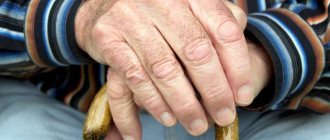In modern reality, a person’s mental organization is often tested. Sometimes there is so much stress in life that we barely have time to adapt to constantly changing circumstances. Some events actually change your understanding of the world and make you endlessly doubt yourself and your existing capabilities. The negative impact of surrounding factors can be so strong that it knocks you out of your usual rut, deprives you of peace, sleep, and confidence in the future. In this regard, a reasonable question arises: is it possible to restore the psyche and how to do it correctly? Actually it is possible. This is a completely feasible task, which is almost always possible to cope with on your own. You will need to put in some effort and not expect too quick results.
Sports activities
Surprisingly, movement helps in many ways to cope with the destructive effects of stress. That is why it is recommended that when you are experiencing strong feelings, do not sit in one place, but try to move as much as possible. You can immediately start exercising, running, or cleaning the house. The main thing is that you can feel better. Movement promotes the production of positive hormones. This is how new strength appears to move on with life and make responsible decisions. Playing sports is an ideal solution for those who are used to taking full responsibility for what is happening.
How to strengthen your nerves
In addition to medication, correction and strengthening of the nervous system should be carried out from the intrapersonal, spiritual, and mental side. After all, medications are a cane that will help you survive stress and put your nervous system in order, but then you need to “learn to walk” on your own.
Thoughts, like emotions, directly affect the level of stress in life. The world knows thousands of cases confirming the power of influence of thought on human life. Both positive and negative. And in this case, too, there is a cyclicity of states. Once we make an effort, then take specific actions to improve our mental state (exercise, meditate, change our thinking and take care of our body by taking the missing vitamins), our hormonal levels stabilize, stress levels decrease, feelings of joy and satisfaction take over, and I want to do even more for my life.
Emotional Intelligence Training
Emotional intelligence is a person’s ability to identify and adequately experience their emotions. Correctly perceive and adequately understand the emotions, intentions, motivations of actions and desires of other people, along with your own. But the most important thing is the ability to manage your emotions and the emotions of other people in order to overcome life situations and solve current problems.
The presence of emotional intelligence in a person is a decisive factor in the formation of personality, quality and standard of living. In the full sense of the word, it determines the vector of our life. And like a muscle in the body, it can be pumped up, improved and curbed.
Training and developing emotional intelligence is not just about controlling emotions. This is not suppressing emotions. This is a management process. Quite as concrete as managing a large enterprise for the sake of its prosperity and profit. And there are very specific methods for achieving success in this matter.
Meditation
The technique is by no means mystical and is quite accessible to the simplest and most ordinary person who does not have superpowers. It lies in being able to learn to be in the “here and now” state. If you wash dishes, don't think about anything other than that plate. This is roughly the general idea of meditative practice. Deep relaxation, internal concentration, deep and even breathing and complete emotional and mental order. Meditation can significantly improve the quality of your life, give strength, inspiration, and peace. Many practices and meditation techniques can be found on the Internet, fortunately they are now widely available. Daily practices and very soon you will notice significant changes in your life.
Sport
In a sense, sport is the same as meditation. Only reinforced. An undoubted advantage of physical exercise is the increase in the production of endorphins (hormones of joy).
But these hormones are not released during any activity. In order for endorphins and dopamines to begin to be released, the load must be above average. It should be a little hard for you, only then the body will begin to “encourage” you. Moreover, exercises on coordination, game tactics, and dancing can have a greater impact on the brain and increase brain activity and fight stress. A few times a week can do wonders not only for your body, but also for your life. Give it a try.
Reading
Many will say that the pace of today's life has so replaced simply reading books that they have been completely replaced by the Internet and social networks. However, reading good books is extremely necessary for us. Learn to read. Reading can not only quickly and effectively work as an antidepressant, but also contribute to the development of your emotional intelligence, memory, and imagination. What will only have a positive effect on the functioning of the brain, and after a while, make the brain work differently, in an anti-stress mode. Love books, because in them you will definitely find answers to all questions.
Study and Hobby
No, this is not studying at school or college. This is self-education. It is the constant improvement of your skills and abilities, the ability to adopt productive experience from mentors, teachers and coaches, that is the key to living in anti-stress mode. The fact is that mastering new skills reinforces the corresponding psychological attitudes in your mind, which directly affect your self-esteem.
New knowledge and skills are reflected in our habits, attitudes and plans, character. In our sense of ourselves in society. They define our goals and aspirations. And if an ordinary average education is the key to survival, then self-education is the key to freedom. Always learn. Increase your erudition, learn to build productive relationships with others, then stress and negative emotions will not be your story.
Meditation
The usefulness of this activity is truly difficult to overestimate. Meditation aims to bring balance to thoughts and feelings. Anyone who regularly practices Merkabah or Yoga Nidra certainly feels happy. Such a person has every chance of helping himself return to his former state of internal balance. It’s just important not to be lazy and follow your inner voice. When thinking about how to restore your psyche after stress, you should not neglect this opportunity. Meditation actually has a lot to offer, but only if it is practiced regularly.
Why stress is dangerous
Often, even after the initial episode of stress has passed, the experience continues to significantly influence our thoughts, feelings and actions. Why this happens is explained by the hypothesis of perseverative thinking - the tendency to linger on certain thoughts for a long time. Prolonged experiences intensify the body's original short-term stress response and trigger this process over and over again, even when the source of discomfort is no longer present.
A study by psychologists showed C. Ottaviani, JF Thayer et al. Physiological concomitants of perseverative cognition: A systematic review and meta‑analysis / Psychological Bulletin that thinking about what could go wrong in the future, or about what has already gone wrong in the past, also affects our healthy habits. We sleep and eat worse, and some may even start abusing illegal substances.
Taking responsibility
You don't have to wait for someone to help you. It is much more important to feel the presence of internal forces. Each of us has internal resources that it is not a sin to use at some point. Accepting responsibility involves letting go of blame. You also need to forgive yourself for past mistakes and omissions. We feel the presence of internal forces only when we ourselves desire it. Learn to express your feelings openly, without hiding. There is no need to be afraid of appearing weak, unable to cope with basic tasks. Be responsible for your choices. Remember that everything in life can be changed if there is such a desire. The main thing is not to dwell on failures and find the strength to look forward. Any critical situation can be overcome. All problems are actually solvable.
Symptoms
Neurasthenia manifests itself with the following symptoms:
- Excessive irritability even over trifles, short temper, anger, constant dissatisfaction.
- Impatience - the desire to get everything at once, the impossibility of waiting - it literally “kills”.
- Constant feeling of fatigue, weakness.
- Pain in the temples or a sensation of encircling, squeezing pain in the head.
- Lack of ability to concentrate and do one thing for a long time.
- Violation of the sequence of thoughts, general perception of the environment.
Speaking in more detail about the symptoms of asthenoneurotic syndrome, it is more correct to consider the disorder in phases, since the intensity of its manifestation gradually increases. But more often the disease stops at a certain phase, that is, its development does not occur, which is reflected in the diagnosis.
Hypersthenic (excitable) form
This is the initial stage of the disease, which is recorded most often. It is characterized by nervousness, irritability, and excitability.
The patient is unnerved by any, even quiet, sounds (creaking and light knocking of the door, whispering, clock ticking, dripping water, etc.), bright light, the presence of people nearby and their movement. The most insignificant reason causes an outburst of emotions, uncontrollable irritation or even anger. Without realizing the reasons for aggression, a person can insult or offend someone.
The patient is impatient, strives to do several things at once, fusses, but his performance leaves much to be desired. It is not weakness or rapid fatigue that is to blame for this, but a problem with concentration and constant distraction.
The sleep pattern is disrupted: the patient is lethargic during the day, and at night he falls asleep with difficulty and sleeps poorly, with nightmares, and often wakes up. Waking up happens either earlier than usual or later.
Constant headaches are called “neurasthenic helmet” - they are compressive and very debilitating. Pain when turning and tilting the head moves along the spine to the back. Mental or physical stress makes them more intense.
Irritable weakness (intermediate form)
This phase combines severe irritability with a rapid decrease in the body's resources. In principle, this is a reflection of the clinical essence of the disorder.
Attacks of irritation are the most intense, outbursts of anger instantly turn to a stream of tears, completely unusual for the individual. Such tearfulness arises from the patient’s inability to overcome overwhelming discontent. The mood changes instantly: sometimes gloom, sometimes joy.
The patient is often lethargic, he is not interested in anything, his appetite becomes worse or disappears altogether. Digestion suffers, which is reflected by diarrhea, constipation, belching, and heartburn. The heart rate increases, pulse and blood pressure fluctuate. The limbs become sluggish, instability and so-called floaters appear before the eyes, a rush of heat is replaced by chills, redness of the skin is replaced by pallor. Libido decreases and men may experience problems with erectile function. There may be a frequent urge to urinate.
Hyposthenic (inhibitory) form
At this stage, depression, weakness, gloom, and lethargy are especially pronounced. I don’t want to do anything, but I don’t feel anxiety or melancholy. The patient’s thoughts are focused only on his own unpleasant sensations in the body, and he, assuming that he has some kind of serious illness, turns to doctors, who, naturally, do not find it.
Very often, neurasthenia can be eliminated with good rest. But if this does not help and the disease has gone too far, then you will have to leave yourself in the hands of professionals.
Medications
It is recommended to contact them only as a last resort. You should not train your body to rely solely on chemical components. It is better to look for strength within yourself in order to cope with an unsatisfactory situation. But there are cases of really strong emotional shock. If such a need arises, it is better to start with the weakest drugs. Serious and highly addictive medications should be avoided. They can only do harm. The human nervous system has a unique ability to heal itself. There is no need to suppress it with potent drugs if the problem is not so global. Always leave yourself a backup option that you can use in a pinch.
Common stress relief
Usually, when a person is exposed to a stress factor for a long time or after this exposure ends, he begins to feel weakness, loss of appetite, sleep disturbance, and fatigue. As a rule, he comes to a therapist with these complaints. The therapist uses general tactics and tries to eliminate the symptoms. But, usually, he recommends visiting a psychiatrist to prescribe specific therapy that prevents the development of mental disorders. So-called post-stress therapy is necessary.
The therapist can limit himself to only general advice on anti-stress therapy, these are:
- restoration of the work and rest regime,
- restorative therapy (vitamins, herbal medicine, aromatherapy, water procedures, including hardening),
- undergo training in methods of self-relaxation and self-regulation of the body,
- prescribes mild sedatives.
Psychologists offer first aid for stress:
- deep and calm breathing,
- stopping internal dialogue,
- dissociation from the situation (look at yourself from the outside),
- outward expression of muscle tension (punching a chair, screaming, running in place, fighting dishes, dancing to loud music, etc.).
There will be as many different kinds of advice as there are psychologists. But this will not solve the main issue - preventing the formation of post-stress disorder. There will be no specific treatment. Although most of these tips can be added directly to the necessary therapy for stress.
Errors
The main mistakes with standard advice from a psychologist and therapist is that the biological negative impact on the physiological processes of the brain is not taken into account. If a therapist recommends that a patient visit a psychiatrist, this does not mean that the person has turned into a psycho. This recommendation only speaks of a specialist’s competent approach to the problem. He wants the patient to be able to completely get rid of possible consequences.
A psychologist who tries to solve this problem on his own is most likely poorly educated. He does not understand the possible danger of developing the consequences of stress received by a person. And this is not surprising since the psychologist has a pedagogical education. In his desire to help, he cannot see possible biological changes in the body.
The main mistake is that a person is afraid to turn to a psychiatrist at the moment. To a specialist who can really help and prevent possible consequences. However, do not be afraid! Go to an appointment with a psychiatrist and this will help you not only avoid the consequences of stress, but also strengthen your nervous system.
Journaling
A powerful method to help get rid of negative impressions. Many people do not know how to restore their psyche and nervous system. The solution is obvious: you need to get into the habit of writing down your feelings. Emotions have to spill out somewhere. Otherwise, negative impressions quickly accumulate and affect the course of everyday life. For this purpose, you can use an ordinary general notebook. Regular journaling helps to free yourself from accumulated worries. As a result, the individual gains peace of mind. Learning to look at what is happening from the outside is very important. This is the only way to identify ways out of a personal crisis and determine where to move next. After some time, it is recommended to review and reread your notes. As a rule, you can find something useful in them. It is imperative to draw the necessary conclusions so as not to repeat previous mistakes.
Nerves and emotions
Nerves and emotions, emotions and nerves are a vicious circle, the cycle of life, the state and proper circulation of which determines the quality of our life and the level of stress in it.
Emotions are undoubtedly of a physical and spiritual nature, influence and shape character, and are transformed over time and throughout life. But the most important thing is that they can be controlled and corrected. Thanks to which the nervous system is strengthened and the level of depression, blues and stress is reduced. This is interesting: emotions are born as a combination of the physical properties of the body, the flexible brain, the environment in which a person is located, as well as his culture and upbringing. But humans also have an emotional brain - the most ancient type of brain cells that has been with us from time immemorial. This is the limbic system in the very center of the brain. It is believed that this part of the brain is responsible for communication with the higher self, for the spiritual component of the personality. So if you want the quality of emotions to be at high vibrations, spend time on your culture, the environment you are in and self-education.
Biking
This point should be considered separately, since it differs from other sports activities. Cycling helps you achieve a state of thoughtful meditation. It is very valuable and helps to unlock inner potential. What does it mean? During such a useful activity, an individual has time to think through many thoughts and make a hundred constructive decisions. This uses the necessary muscles to help maintain physical fitness. Cycling can be limited only by the desire of the person himself or by weather conditions. It has been noted that regular exercise helps release huge amounts of positive energy. Later it can be used for any pressing matters. Making creative decisions is also not without inspiration.
Consequences of long-term stress
The stronger and longer the stress, the more dangerous its consequences for the body. Attention, memory, and performance decrease. Immunity deteriorates, which leads to frequent infections and inflammatory processes.
Possible development:
- endocrine diseases - diabetes mellitus, metabolic syndrome;
- pathologies of the digestive system - gastritis, peptic ulcer of the stomach and duodenum, dyspepsia;
- oncological diseases, and the localization of the tumor can be any.
Some patients cannot cope with their condition and resort to alcohol or psychotropic substances.
Target organs under prolonged stress
Uncontrolled stress provokes heart and vascular diseases. The most famous are heart attack, stroke, hypertensive crisis.
A typical reaction to stress is an increase in blood pressure. Its “jumps” create additional stress on the heart and blood vessels.
With severe anxiety, palpitations may occur, and in some cases, heart rhythm disturbances. It is also possible to develop stress cardiomyopathy, or “broken heart syndrome,” in which muscle tissue abruptly loses its contractility. As a result, blood circulation throughout the body is disrupted, and there is a risk of heart rupture.
With prolonged stress, vasospasm occurs, which leads to oxygen starvation of vital organs - the brain and heart. This condition is especially difficult for people with existing pathologies of the heart and blood vessels, with bad habits: illnesses worsen, health quickly deteriorates.
Setting goals
Until we know what we want to do, it can be difficult to figure out how to restore our psyche after severe stress. A person should be as clear as possible about his desires and capabilities. Without this understanding, it is impossible to move forward, remain satisfied with yourself and the accompanying achievements. Defining specific goals will help you stay on track and find the strength to radically change an unsatisfactory situation. The more clearly a person imagines the changes taking place, the easier it becomes to live.
Change of environment
In order to get rid of accumulated stress, it is not recommended to sit at home. In an apartment we always move little, and we are also prone to the habit of driving ourselves into big worries. Travel helps a lot. A change of environment helps to get rid of various conditions, including fears and depression. It is best to go somewhere outside the city, into nature. In this case, the individual will have significant peace of mind and will be able to let in new positive energy. It is recommended to meet new interesting people. Exciting communication will help cope with anxiety and despair.
Signs of long-term stress
Stress becomes dangerous when exhaustion sets in. The psyche cannot cope with the emotional load, and as a result, diseases and conditions called psychosomatic arise. It is no longer the mood that suffers, but vital organs and systems.
Critical illness due to stress is much more serious than just a bad mood
How to recognize mental exhaustion:
- The structure of sleep is disrupted: a person sleeps restlessly at night or wakes up tired, no matter how many hours he sleeps;
- Eating disorders may occur: both overeating and starvation;
- Constant fatigue, loss of strength, feelings of anxiety and hopelessness appear;
- Apathy is observed - a person loses interest in life, becomes inhibited, takes a long time to formulate thoughts, loses the thread of the conversation;
- Frequent headaches, dizziness, and blood pressure may increase.
Working with a psychologist
This is the best scenario imaginable. A high-level specialist knows how to minimize the destructive effects of stress and avoid negative consequences. Today there is no point in trying to fight your problems alone. It is much more valuable to be able to entrust your disturbing thoughts to a stranger and want to correct the situation.
Thus, stress must be dealt with. There is no need to hush up problems and burden the psyche even more. A person must, first of all, take responsibility for what is happening. No one will do this for him. If the problem is so strong that it prevents you from living happily, it is highly recommended to contact the community of psychologists and rehabilitation specialists Irakli Pozharisky. Your problems will not go unnoticed.











